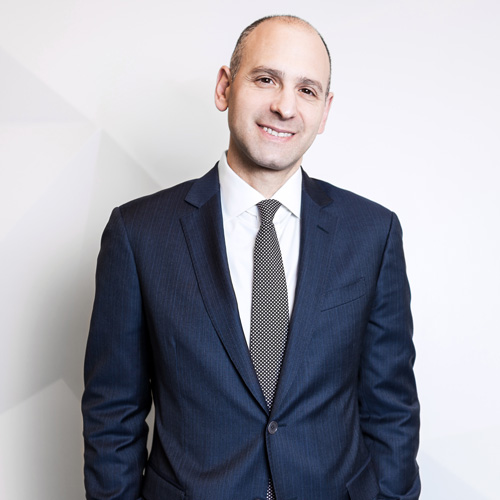
Every company is a direct reflection of its owner. The company’s culture follows the leader. When Nancy Sharp looks in the mirror each morning, she asks herself, “Where are we leading our team, what are we good at, and what do we need to be better at?”
Sharp continually looks inward to understand what she brings to the table, and she finds talented people to help develop her vision.
“Because I’ve got people behind me looking in that same mirror, they follow me and they trust me—they should trust me,” Sharp says. “It’s my responsibility to know which way to move the business in order for the army to want to follow.”
Sharp understands that leadership is a privilege and she takes this responsibility seriously and with passion. She leads almost six hundred people to reach company goals, while bringing out the best in each team member. Food For Thought is built on passion, people, and profit by fostering a culture of entrepreneurship.
In running her company, Sharp follows a philosophy of personal responsibility: “I believe that everyone has great potential and the responsibility to be their best self, and to serve their communities with all their talents,” she says. “To be the best of yourself, you must continue to invest in yourself, in learning, in stretching to new heights, and in self-awareness.”
Most entrepreneurs treat their business as their job, and don’t stretch to enrich their business to become an investment. Transitioning from entrepreneurial startup to a professionally managed firm takes, time, dedication, talent placement, and managing the financial investments. Food For Thought began as a family business thirty-three years ago, and grew to a professionally managed firm that invests in new business lines, develops new products, and acquires companies that align with their business.
“A business is a living, breathing entity that needs new people and new ideas to stay relevant and competitive in the market,” Sharp says. If a leader is good in one area, such as sales and marketing, but not good in finance or operations, this must be recognized and talented people hired to support the leader. “Our job at Food For Thought is to build a company of great people to move product ideas into the marketplace.”
Food For Thought’s simple idea came in the early 1980s. Sharp grew up in a close-knit Hispanic family, which moved back to Chicago from Miami when their father passed away. “Our best time was our dinner table, and all special moments started and ended with food, conversation, and love. There was always a full table and there was always room for friends,” Sharp says.
She and her younger siblings had all worked in hospitality, along with their mom, beginning at Exmoor Country Club in Highland Park, Illinois. In the early 1980s, it seemed that companies were expanding and growing processes while taking the service of hospitality out of the experience.
So the family set out to build a business that offered a unique experience—delicious food and gracious hospitality, which are the cornerstones of Food For Thought to this day. “As a family, we care about each other. We wanted to build something special, and still to this day spend as much time as we can together at the dinner table,” Sharp explains.
Alongside her mother, siblings and husband, Sharp helped create the Food For Thought brand. For the past thirty years, the company has grown from being just a catering company to including dining services, delivery, and venue management.
“As an entrepreneur, the market can lead you in many directions, and it’s important to know when to say yes and when to say no,” Sharp advises. “But always take the risk on researched opportunities because you don’t want to miss something that can launch a new business.”
Sharp identified three of the hardest challenges for an entrepreneurial business. First, the business is usually underfunded; second, a family is supporting and leading the company; and third, is understanding that the business will go through many changes as it grows and competes in the market. What you do to start your business needs to change as you enter the next phases of development. You need capital—the family might be good at starting the business but not growing the business, and the market is changing all the time.
“I looked up and said, ‘I’m going to get us there, I’m going to get all of us there. Now, where is there, I don’t know, but I’m not quitting until I get us all to this star.’”
Nancy Sharp
In 2004, Sharp’s husband Curt passed away. Curt had been the company’s president, and the entire family was working in the business. During his illness, an outside president was brought in to run the company.
Prior to his passing, Sharp asked her husband for advice on what to do, where to take the company. “I have to walk in and keep them together when I’m falling apart. I know how important it is that I show strength and courage through a really, really hard time,” she recalls. “They were hurting as much as I was hurting, but it wasn’t about me. It was about them.”
In asking her husband for advice, he told her he couldn’t tell her what to do after he passed because she wouldn’t do it anyway, and if it didn’t work, she would blame him. “I walked outside and there was a star in the sky, that north star,” Sharp says. “I looked up and said, ‘I’m going to get us there, I’m going to get all of us there. Now, where is there, I don’t know, but I’m not quitting until I get us all to this star.’”
That is the job of the CEO: taking a community of people, and the best products, and getting to the north star. There will be side trips, you’re not going to know everything, you only know what you know, until you learn more, and you will fail more than you feel you succeed, and it’s going to hurt, she says.
“If you look up every day and you own the fact that you’re personally responsible, then you will get them to the north star,” she explains. “Because you don’t stop at anything but getting there.”

